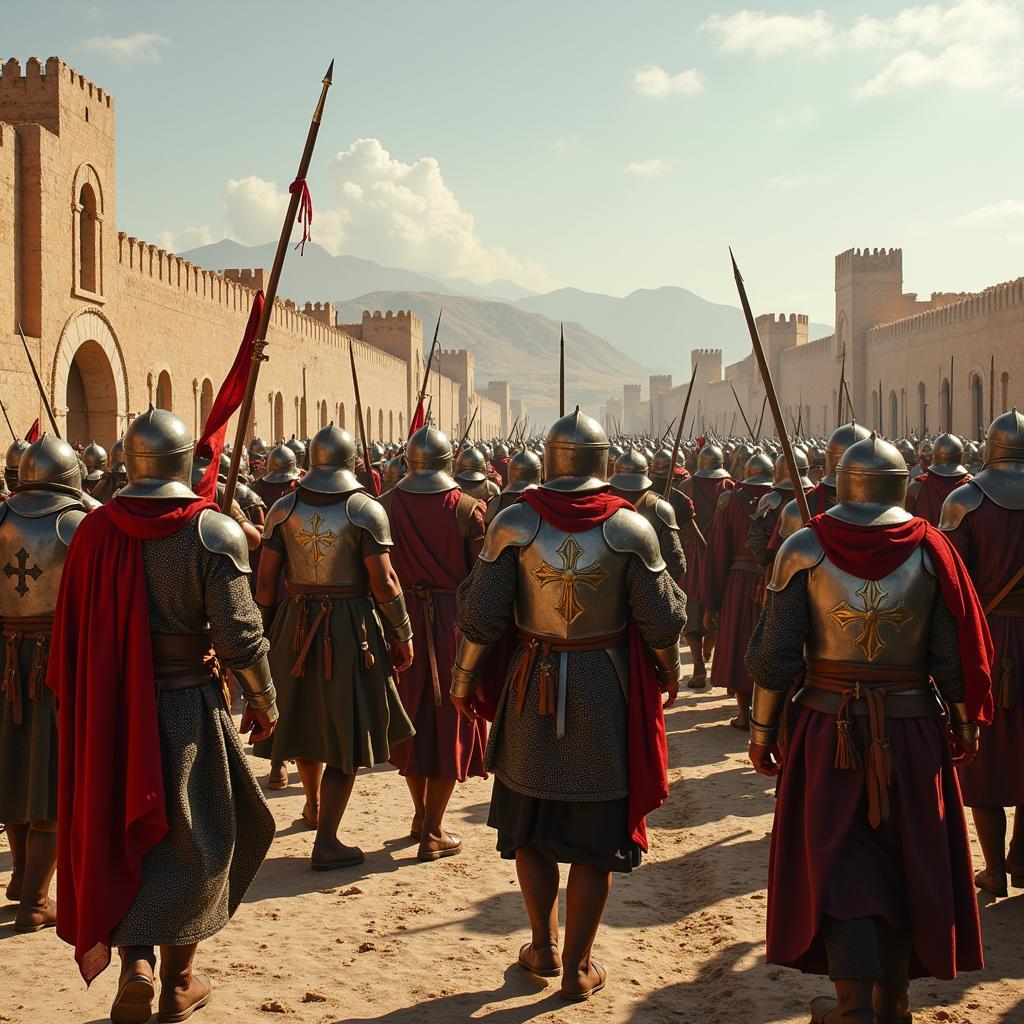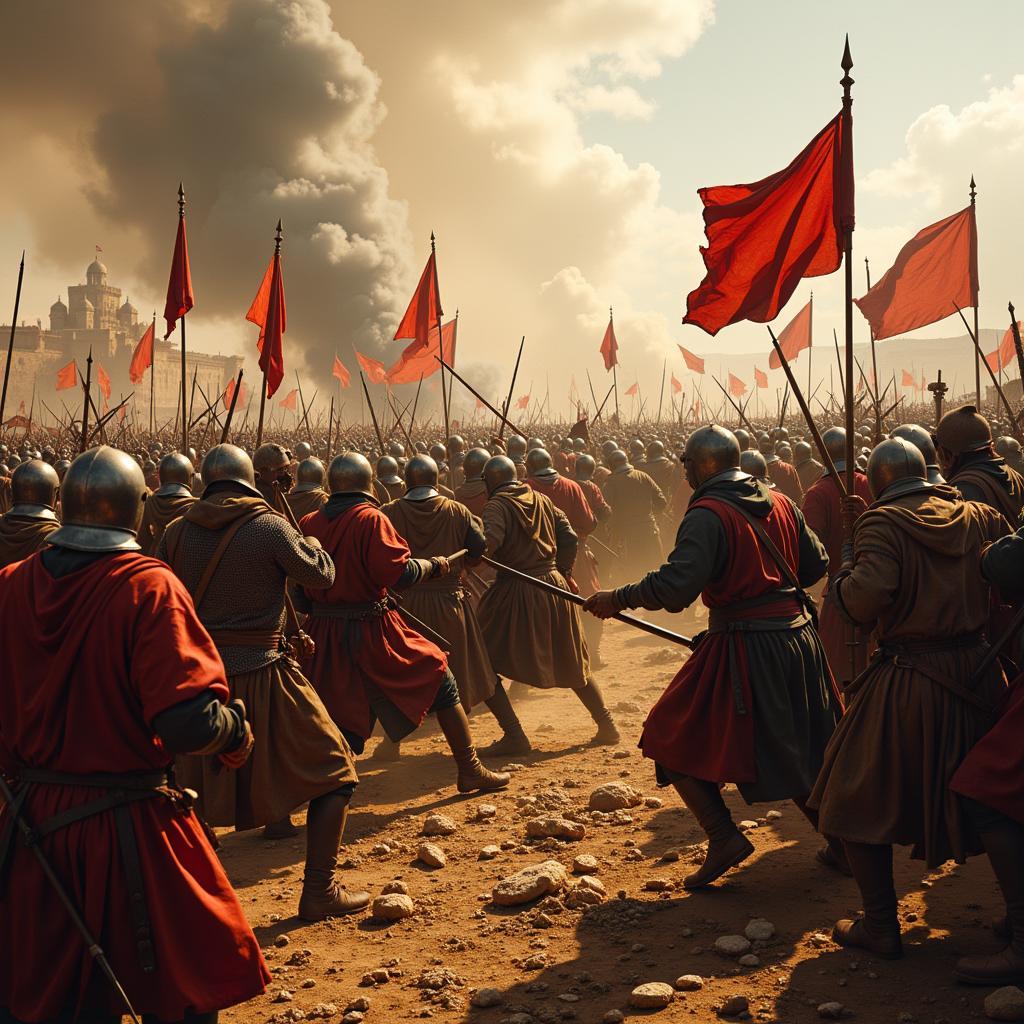The Crusades, a series of religious wars waged between the 11th and 13th centuries, continue to fascinate and trouble us today. Often framed as a clash between Christianity and Islam, the historical reality is far more nuanced. This article delves into the complex relationship between Christian Society And The Crusades, exploring their motivations, consequences, and lasting impact on our world.
A Call to Arms: The Origins of the Crusades
In 1095, Pope Urban II issued a call that would reverberate through history. He urged Christian Europe to reclaim the Holy Land, particularly Jerusalem, from Seljuk Turk rule. While religious fervor undoubtedly played a role, the motivations behind the Crusades were multifaceted.
 Crusaders Marching
Crusaders Marching
Political ambitions, economic incentives, and social pressures all intertwined with religious zeal. European rulers saw opportunities for territorial expansion and consolidation of power. Merchants eyed the lucrative trade routes of the East. For younger sons with limited inheritance prospects, the Crusades offered a chance for adventure and potential wealth.
The Crusades and the Shaping of Christian Society
The impact of the Crusades on Christian society was profound and far-reaching. On one hand, they fostered a sense of unity and purpose across Europe. The Church’s authority was strengthened, and new religious orders, such as the Knights Templar, emerged.
On the other hand, the Crusades also fueled intolerance and violence. They led to persecution of Jewish communities within Europe and exacerbated tensions with the Islamic world. Furthermore, the Crusades had a significant economic impact, stimulating trade and cultural exchange but also contributing to warfare and instability.
Legacy of the Crusades: Between Myth and Reality
The Crusades are often romanticized in popular culture, portrayed as heroic endeavors. However, it’s crucial to acknowledge the violence, brutality, and cultural misunderstandings that defined this era.
 Battle During the Crusades
Battle During the Crusades
Historians continue to grapple with the legacy of the Crusades, exploring their long-term consequences on interfaith relations, political structures, and cultural perceptions. Understanding this complex history is essential for fostering dialogue and promoting peace in our world today.
Conclusion
The relationship between Christian society and the Crusades is a complex tapestry woven from threads of faith, power, and ambition. While often remembered for their religious motivations, the Crusades were driven by a confluence of factors that shaped the course of history. As we strive to build a more peaceful future, it’s imperative to confront the complexities of the past and learn from its lessons.